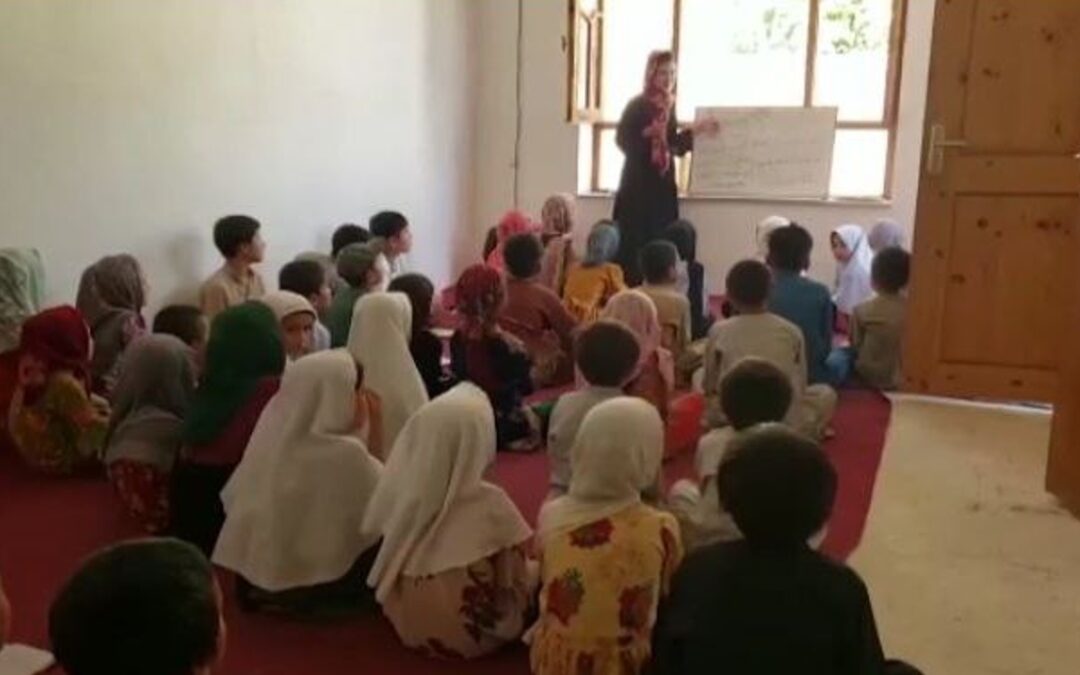Taliban ‘indirectly benefits’ from US education funding, SIGAR report says

A new report by the Special Inspector General for Afghanistan Reconstruction (SIGAR) sheds light on distressing developments within Afghanistan’s education sector. The findings indicate a substantial deterioration in both access to and the quality of education following the Taliban’s takeover, posing severe consequences for the nation’s future.
One of the revelations in the report is the indirect benefit the Taliban is gaining from U.S.-funded education assistance through various channels. These channels include the establishment of deceptive non-governmental organizations (NGOs) to receive donor aid and the infiltration and extortion of existing Afghan NGOs engaged in educational support.
Notably, the report points out that this assistance inadvertently generates tax revenues for the Taliban. These funds come from personal income taxes imposed on Afghans employed by U.S.-funded programs and sales tax income from goods acquired from landlords, contractors, and vendors, as highlighted in the report titled Status of Education in Afghanistan: Taliban Policies Have Resulted in Restricted Access to Education and a Decline in Quality.
Decline in Education Access and Quality
The report underscores that the Taliban’s ascent has triggered a significant decline in education access and quality across Afghanistan. Taliban-issued education policies, which involve barring girls from secondary education, imposing gender segregation in schools, and confining women teachers to girls’ primary schools, have led to a notable drop in secondary school student enrollments since August 2021.
A survey conducted by the U.S. Agency for International Development (USAID) found that girls’ attendance in secondary schools had decreased in all provinces, including Kabul, since August 2021. Moreover, boys’ attendance in secondary schools experienced a decline of over 10 percent in eight provinces. The higher education sector has also been adversely affected, with a private university reporting a 50 percent reduction in enrolled students and the discontinuation of most women’s educational programs due to Taliban policies.
Impact on Education Quality
The report underscores that the decline in education access is mirrored by a drop in the overall quality of education in Afghanistan. The impact is especially severe on female teachers, who are now limited to gender-segregated classrooms, resulting in staffing shortages. The deteriorating economic conditions in Afghanistan have also forced households to withdraw children from school to work or arrange early marriages for their daughters to manage household expenses.
Furthermore, the report highlights the diminishing quality of teachers, with previously qualified educators being replaced by untrained community members or Taliban officials. The secular curriculum has been replaced by religious studies, curtailing the breadth of education. Many teachers are resigning for personal safety, given the Taliban’s punitive measures and restrictions on female employment and travel.
Shift Towards Private Schools
As a response to Taliban policies, international donors, including USAID, have redirected their funding towards private schools. These include community-based education schools (CBEs) and distance learning initiatives designed to enhance primary-level education accessibility, particularly in areas with limited public school facilities and marginalized populations like girls and internally displaced children.
Concerns Over Madrassas and Narrowed Curricula
The report highlights concerns regarding the increasing number of madrassas infiltrating the public school system. This poses issues due to the lack of secular education, particularly in technology, science, mathematics, reading, and writing. The absence of these essential skills could hinder students from securing sustainable income and impede Afghanistan’s economic growth.
The Taliban’s education policies further diminish the quality of education by narrowing curricula and eliminating secular subjects in favor of their interpretation of Islamic studies.
Continued Support from State Department and USAID
Despite the cessation of on-budget education assistance following the Taliban’s takeover, both the U.S. State Department and USAID continue to support the education sector. Currently, they are overseeing six programs with an estimated cost of $1.9 million and $183.3 million, respectively.
These findings underscore the urgent need for ongoing efforts to address the educational crisis in Afghanistan. The repercussions extend beyond the present to the nation’s future prospects.
No comments:
Post a Comment